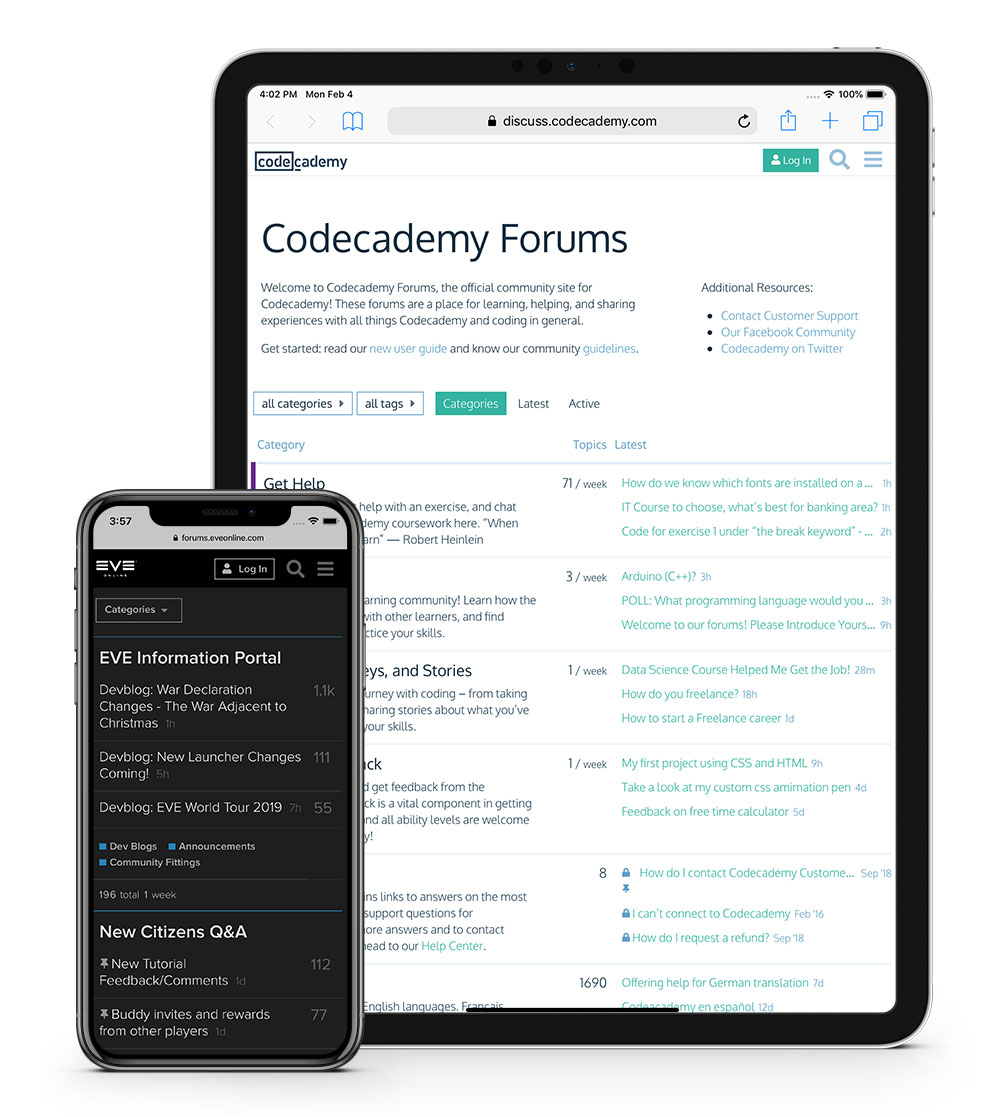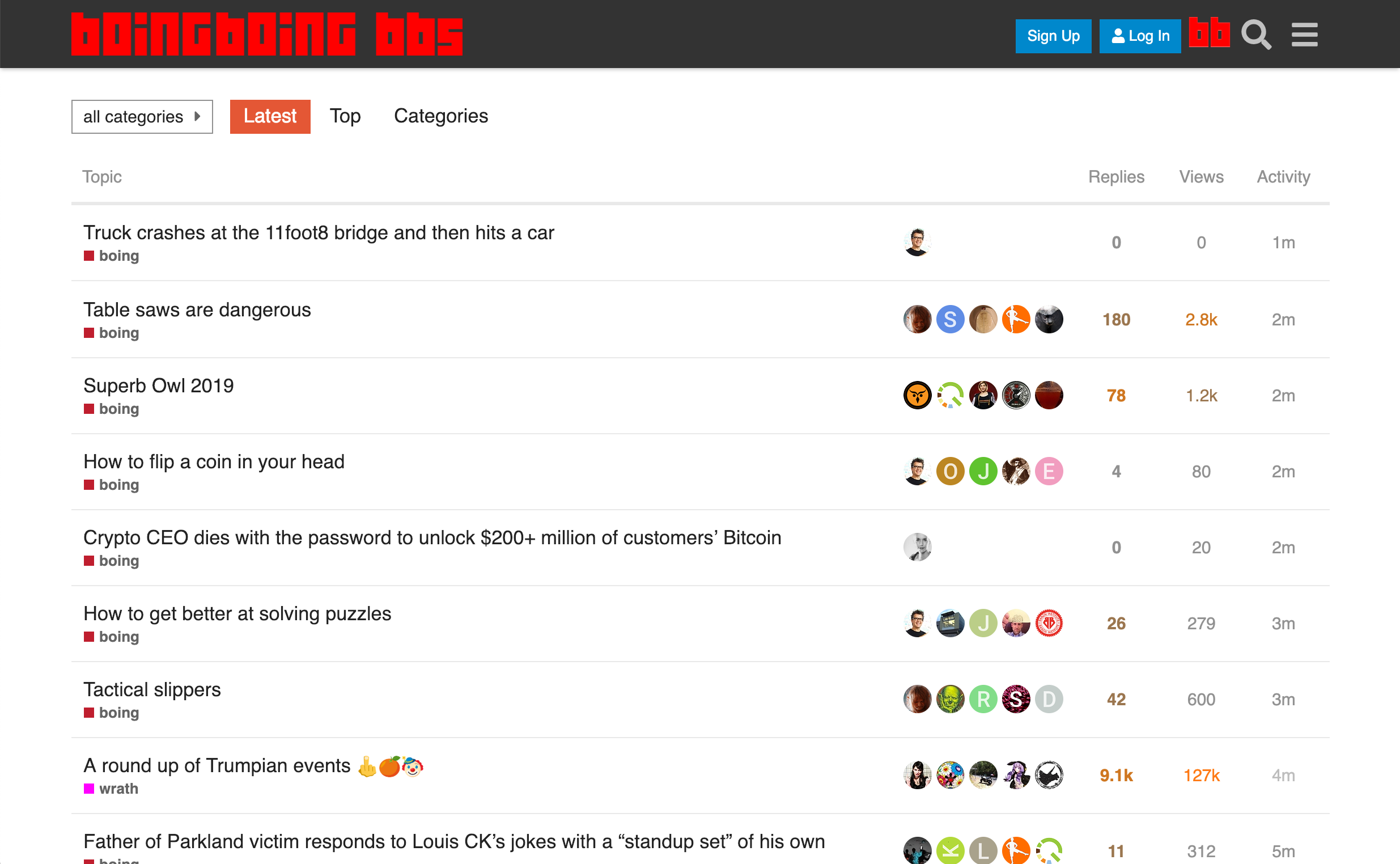Because Discourse is a single-page application, clicks on the majority of `<a>` elements in the app need to be intercepted by JavaScript to prevent browsers' default action (full page reload). Links in the user menu - which include notifications, reviewables, bookmarks etc. - are no exception to this rule and currently clicks on these items are handled by the global [click-interceptor](1fa21ed415/app/assets/javascripts/discourse/app/lib/intercept-click.js (L20)) which calls the `preventDefault` function on the click event object and uses the `DiscourseURL.routeTo` function to route the user to the page they request.
However, for links in the user menu, there's an extra step which is to let the header know that it should close the user menu after clicking an item in the menu, but the global interceptor doesn't know that because the step is specific to links in the user menu. This can cause a bug on mobile devices where the menu remains open after clicking on a notification which results in the user having to close the menu to see the page that the notification takes them to.
This commit adds a click handler to user menu items that ensures the menu is closed when an item is clicked and navigates the user to wherever the item links to. There's a small downside to this change which is that user menu items now have their own click interceptor instead of relying on the global interceptor, i.e. duplicated logic, but since it's only a couple of lines, I think we can live with it for a while.
I did try to make the click handler of the user menu items only close the menu (call the `closeUserMenu` function), but for some reasons it caused a full page reload to happen when clicking a notification item due to some weird interactions between the header widget and the user menu. I didn't debug this thoroughly because we have plans to change the header implementation from widgets/virtual-dom to Glimmer component, which will likely resolve that weird full page reload issue and we'll be able to make the click handler just close the menu and let the global interceptor prevents the default action and do the routing.
Internal topic: t/71911/118.

Discourse is the 100% open source discussion platform built for the next decade of the Internet. Use it as a:
- mailing list
- discussion forum
- long-form chat room
To learn more about the philosophy and goals of the project, visit discourse.org.
Screenshots

Browse lots more notable Discourse instances.
Development
To get your environment setup, follow the community setup guide for your operating system.
- If you're on macOS, try the macOS development guide.
- If you're on Ubuntu, try the Ubuntu development guide.
- If you're on Windows, try the Windows 10 development guide.
If you're familiar with how Rails works and are comfortable setting up your own environment, you can also try out the Discourse Advanced Developer Guide, which is aimed primarily at Ubuntu and macOS environments.
Before you get started, ensure you have the following minimum versions: Ruby 2.7+, PostgreSQL 13+, Redis 6.2+. If you're having trouble, please see our TROUBLESHOOTING GUIDE first!
Setting up Discourse
If you want to set up a Discourse forum for production use, see our Discourse Install Guide.
If you're looking for business class hosting, see discourse.org/buy.
Requirements
Discourse is built for the next 10 years of the Internet, so our requirements are high.
Discourse supports the latest, stable releases of all major browsers and platforms:
| Browsers | Tablets | Phones |
|---|---|---|
| Apple Safari | iPadOS | iOS |
| Google Chrome | Android | Android |
| Microsoft Edge | ||
| Mozilla Firefox |
Additionally, we aim to support Safari on iOS 12.5+ until January 2023 (Discourse 3.0).
Built With
- Ruby on Rails — Our back end API is a Rails app. It responds to requests RESTfully in JSON.
- Ember.js — Our front end is an Ember.js app that communicates with the Rails API.
- PostgreSQL — Our main data store is in Postgres.
- Redis — We use Redis as a cache and for transient data.
- BrowserStack — We use BrowserStack to test on real devices and browsers.
Plus lots of Ruby Gems, a complete list of which is at /main/Gemfile.
Contributing
Discourse is 100% free and open source. We encourage and support an active, healthy community that accepts contributions from the public – including you!
Before contributing to Discourse:
- Please read the complete mission statements on discourse.org. Yes we actually believe this stuff; you should too.
- Read and sign the Electronic Discourse Forums Contribution License Agreement.
- Dig into CONTRIBUTING.MD, which covers submitting bugs, requesting new features, preparing your code for a pull request, etc.
- Always strive to collaborate with mutual respect.
- Not sure what to work on? We've got some ideas.
We look forward to seeing your pull requests!
Security
We take security very seriously at Discourse; all our code is 100% open source and peer reviewed. Please read our security guide for an overview of security measures in Discourse, or if you wish to report a security issue.
The Discourse Team
The original Discourse code contributors can be found in AUTHORS.MD. For a complete list of the many individuals that contributed to the design and implementation of Discourse, please refer to the official Discourse blog and GitHub's list of contributors.
Copyright / License
Copyright 2014 - 2022 Civilized Discourse Construction Kit, Inc.
Licensed under the GNU General Public License Version 2.0 (or later); you may not use this work except in compliance with the License. You may obtain a copy of the License in the LICENSE file, or at:
https://www.gnu.org/licenses/old-licenses/gpl-2.0.txt
Unless required by applicable law or agreed to in writing, software distributed under the License is distributed on an "AS IS" BASIS, WITHOUT WARRANTIES OR CONDITIONS OF ANY KIND, either express or implied. See the License for the specific language governing permissions and limitations under the License.
Discourse logo and “Discourse Forum” ®, Civilized Discourse Construction Kit, Inc.
Accessibility
To guide our ongoing effort to build accessible software we follow the W3C’s Web Content Accessibility Guidelines (WCAG). If you'd like to report an accessibility issue that makes it difficult for you to use Discourse, email accessibility@discourse.org. For more information visit discourse.org/accessibility.
Dedication
Discourse is built with love, Internet style.


